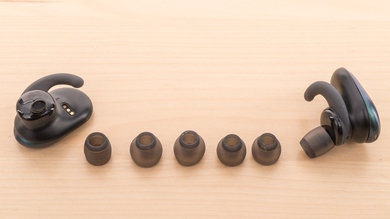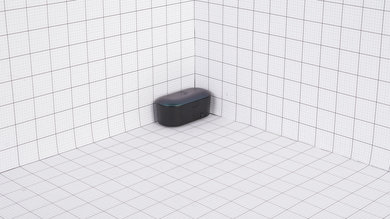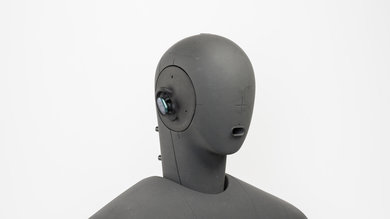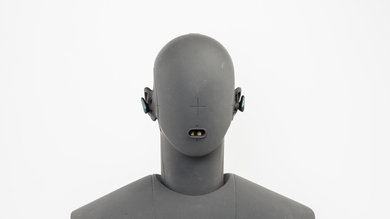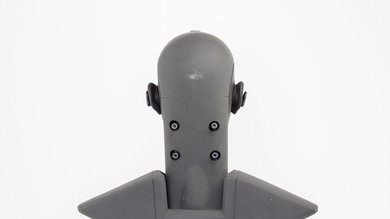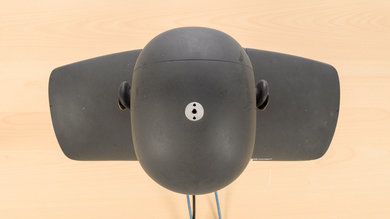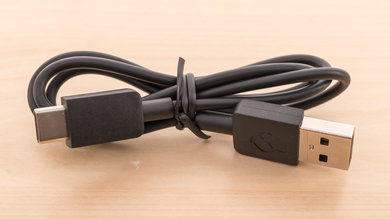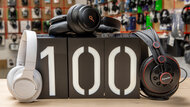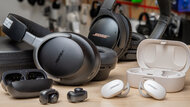The Skullcandy Push Truly Wireless are fair mixed usage headphones. Although bulky and plasticky, these in-ears are still lightweight and comfortable. Their high portability makes it easy to take them with you anywhere, and they can also isolate a fair amount of noise, making them decent for commuting. They've also got an amazing wireless range. On the downside, they have a bass-heavy sound profile, and while this might please fans of EDM and hip-hop, other listeners might not appreciate the boominess.
Our Verdict
The Skullcandy Push are alright for mixed usage. They're portable and stable earbuds. Some might not find their in-ear fit comfortable, especially if you're wearing them for long commutes. However, they're well-suited for working out or running. Although their 6.5-hour battery life might not be enough to get you through your 9-5, they do offer an additional charge in the case. Unfortunately, while they have a decently well-balanced mid-range, the overemphasized and boomy bass will better please fans of bass over critical listeners.
-
Portable design.
-
Stable and breathable for sports.
-
Excellent wireless range.
-
High latency.
-
In-ear fit might not be for everyone.
The Skullcandy Push are passable for neutral listening. While they have a decently well-balanced mid-range, the bass is powerful and boomy, which might not please critical listeners. The treble is also slightly underemphasized, and a bit of detail and brightness are lost, especially on sibilants. Unfortunately, due to their in-ear, closed-back design, they won't produce a very immersive soundstage. However, these earbuds have an excellent frequency response consistency, so you'll get the same sound each time you wear them.
The Skullcandy Push are decent for commuting and traveling. Their portable design makes it easy to take these earbuds with you when you're on the go. For short commutes, they're comfortable, although their in-ear fit might become fatiguing for longer trips. Unfortunately, these earbuds don't significantly reduce bus or train engine rumbles. However, they do a much better job of cutting down speech. Their leakage performance is superb: if you're masking some background sounds by turning up the volume, you shouldn't bother those around you.
The Skullcandy Push are very good for sports. They're very portable. They're also breathable and stable enough for most physical activities, even though they don't offer different stability fin sizes. While they might be fatiguing to wear for long 5k runs, they should be comfortable enough for shorter workouts at the gym. Their bass-heavy sound profile is also great for getting you pumped up while you work out.
The Skullcandy Push are just okay for the office. They're fairly comfortable in-ears. Unfortunately, when worn for long periods, they might be fatiguing for some. Their 6.5-hour battery life also might not be able to get you through the workday without a mid-day recharge. Luckily, they offer an additional charge in the case. They also do a great job of reducing chatter; you can turn up the volume without distracting others as these earbuds don't leak too much sound. They have an excellent wireless range, so if you've got a good Bluetooth source, you can leave your wireless device on your desk while you walk around the office.
The Skullcandy Push are Bluetooth-only headphones and aren't recommended for wireless gaming. You can't use them on PS4 or Xbox One. While you can use them on PC, their high latency may hinder your gameplay.
The Skullcandy Push are Bluetooth-only earbuds, and you can't use them wired.
The Skullcandy Push are mediocre for phone calls. They have an integrated microphone, which makes it easy to take calls anywhere. However, when you use this microphone, your voice will sound thin and lacking in detail. It also struggles to separate your voice from background noise, even in moderately noisy environments, making it less than ideal if you're taking calls in a cafe or at the office.
- 6.8 Mixed Usage
- 6.3 Neutral Sound
- 7.3 Commute/Travel
- 8.0 Sports/Fitness
- 6.5 Office
- 5.0 Wireless Gaming
- 5.0 Wired Gaming
- 6.3 Phone Calls
Changelog
- Updated Feb 18, 2020: Converted to Test Bench 1.4.
- Updated Nov 21, 2019: Converted to Test Bench 1.3.1.
- Updated Nov 21, 2019: Converted to Test Bench 1.3.
- Updated Jan 22, 2019: Review published.
- Updated Jan 20, 2019: Our testers have started testing this product.
Check Price
Compared To Other Headphones

The Skullcandy Push are truly wireless in-ears with a bulky, plastic design. Similar to most other Skullcandy headphones, they have a bass-heavy sound profile. However, they have disappointing continuous battery life, and their one additional charge provided by the charging case falls short of the multiple charges offered by competitors like Anker or JBL.
See our recommendations for the best sounding wireless earbuds, the best true wireless earbuds, the best wireless headphones under $100, and the best earbuds for bass.
The Skullcandy Indy Truly Wireless and the Skullcandy Push Truly Wireless are fairly similar performing headphones. However, since our Indy unit had mismatched drivers, the Push might be a better option. The Push have a bulkier case, which isn't as easy to carry around, but they have an overall better-balanced sound profile and still pack a powerful bass. You also get 6.5 hours of battery life on one charge, which is two hours more than the Indy. On the other hand, the Indy have a sleeker stalk design and a smaller case but might sound too dark for some.
The Skullcandy Sesh Truly Wireless are slightly better than the Skullcandy Push Truly Wireless. The Sesh have smaller earbuds that protrude out of the ear less but are equally comfortable and stable in the ear. They have similar bass-heavy sound profiles, though the Sesh are slightly better balanced. The microphone of the Push is much better due to better recording quality, though overall it's still unremarkable.
The Jaybird Run Truly Wireless are better headphones than the Skullcandy Push Truly Wireless. The Jaybird have a more accurate audio reproduction and a mobile app to let you change the EQ to your liking. Their design is also more comfortable, and they include different stability fin sizes, which don't come with the Skullcandy. However, the Skullcandy have a better control scheme to use on the go, and they offer more battery life on a single charge.
The Skullcandy Push Truly Wireless are better headphones than the Apple AirPods (1st generation) if sound is the most important thing for you. The Skullcandy are more packed with bass thanks to their closed-back design, and they also isolate better. However, the Apple are better made, more comfortable, and have a better build quality. They also have more battery charges stored in the case, which can be useful. If you're looking for truly wireless headphones to jog with outside, then the open-back Apple will allow you to be more alert to your surroundings.
The Samsung Gear IconX Truly Wireless are better headphones than the Skullcandy Push Truly Wireless. The Samsung have 4GB of onboard storage and a more health-focused app with a built-in coach to keep track of your workout progress. Their sound quality is also superior and more accurate than the bass-heavy Skullcandy. On the other hand, the Skullcandy have more battery life on a single charge and an excellent wireless range.
The Skullcandy Push Truly Wireless and Sony WF-SP700N Truly Wireless perform similarly and also have a similar design. Even though the Sony have an ANC feature, they don't isolate more noise than the Skullcandy. Their control scheme is also a bit hard to use, and you don't even get volume controls on the buds. Also, the Skullcandy have better wireless range and battery life, making them slightly more versatile throughout the day. On the other hand, the Sony and its case are slightly better made and feel more like premium headphones.
The SoundPeats TrueFree/True Wireless and Skullcandy Push Truly Wireless are two truly wireless headphones that perform similarly, so the low price tag of the SoundPeats make them a better choice for most users. They even feel better made than the Skullcandy and have better isolation performance, which is useful for commuting and using at the office. They also have a more low-profile and compact design. Some may prefer having volume control directly on the headphones and a longer battery life, which would then make the Push a better choice.
The Anker Soundcore Liberty Air are better truly wireless in-ears than the Skullcandy Push Truly Wireless. The Anker have a more lightweight design, and their case is more portable. The sound quality is more neutral, but some may prefer the heavy bass of the Skullcandy. The Anker isolate more noise and are more versatile for everyday casual use. However, the Skullcandy have a better control scheme that offers volume control, which the Anker lacks. The Anker also have a longer battery life on one charge and maxed out our testing facility for wireless range.
The Skullcandy Push Truly Wireless are better headphones than the Altec Lansing True Evo. The Skullcandy include volume controls, which the Lansing lack, and a control scheme that is more complete. The Skullcandy also have a longer battery life on a single charge, but their case only holds one additional charge, which is disappointing compared to the Altec's four. The Altec also feel better built and have less of a plastic feel than the Skullcandy, especially in regards to their case.
The TREBLAB X5 Truly Wireless are better truly wireless headphones than the Skullcandy Push Truly Wireless. They're more stable in the ear thanks to their stability fins, and they have a more accurate audio reproduction that isn't as bass-heavy as the Skullcandy. While they have lower battery life on one charge, the case of the TREBLAB can hold more charges than the single one of the Skullcandy's case. On the other hand, the Skullcandy have amazing wireless range and will be better suited for bass-heavy music. They might not feel very durable, but they feel less cheap than the TREBLAB. However, their latency is pretty high, and you will notice a delay when watching video content.
The JBL Endurance Peak True Wireless are better truly wireless in-ears than the Skullcandy Push Truly Wireless. The JBL have a more stable fit, thanks to their secure ear-hook design; isolate more noise; and have a more balanced sound profile. However, the Skullcandy are more comfortable and have a better control scheme. The Skullcandy also have a longer battery life but takes longer to charge. On the other hand, their charging case holds fewer additional charges, and they don't have a power-saving feature like the JBL.
The Skullcandy Push Truly Wireless are more versatile than the Skullcandy Push Ultra Truly Wireless. The Push are slightly more comfortable, have a higher-quality integrated microphone, deliver a more consistent listening experience, and block out far more background noise. However, the Ultra have lower Bluetooth latency and a longer total battery life, and they charge quite a bit more quickly.
The Skullcandy Sesh Evo True Wireless and Skullcandy Push Truly Wireless have different strengths. The Sesh Evo are better built, block out more ambient noise, leak less audio, and have longer total battery life. The Push, meanwhile, last longer on a single charge and have a microphone with better noise-handling capability.
Test Results
The Skullcandy Push have a unique but overall plasticky look. Their slightly elongated design is a bit bulky and can stick out of your ear. While some might not like the teal color, these in-ears also come in a grey variant. If you're looking for something less bulky and smaller, check out the Skullcandy Sesh Truly Wireless.
These headphones are decently comfortable. They come with three tip sizes so that you can find a fit that best suits you. They don't come with any additional stability fins. However, as in-ear headphones, they might not be comfortable for everyone, and you might feel fatigued if you wear them for a long time. Their angled design shouldn't put too much pressure on your ears, as even though they're a little bulky, they're still fairly lightweight. The push controls are also sensitive, meaning you don't need to push hard on the earbuds to register a control.
The Skullcandy Push have okay physical controls. You can manage music and calls, control volume, and trigger voice assistant. The buttons are very responsive, so to register a command, you only need a light touch. However, the controls can be a bit tricky to use. A three-second hold on the left or right earbud will skip a track backward or forward, respectively. However, if you miss the audio beep at the three-second mark while you're holding the right earbud and you continue to hold it down, it'll trigger another control: a five-second hold will turn off your headphones, which can be less than ideal when you want to replay the last song.
Even though the Skullcandy Push have a bulky design, they're still very breathable. Since they're in-ears, they won't trap heat under an ear cup as they don't have any. You shouldn't sweat too much more when wearing them, which is great if you plan to use them while running or working out.
The Skullcandy Push are very portable, just like other most truly wireless in-ears like the Altec Lansing True Evo Truly Wireless. They can easily fit inside most pockets or be tucked away in a bag. You can also store them in their decently small case. Even if their case is a bit bulkier than other similarly-designed earbuds, it should still fit in most pockets.
The Skullcandy Push have a decent charging case to protect them from scratches and small impacts. The case's locking mechanism is a nice touch, but overall, the lid is very thin and feels fragile. Even though there are magnets to help hold the earbuds in place, the buds can still fall out of the case if the impact is hard enough. On the upside, if you want to know if you still have a charge in the case, there's a battery indicator, which isn't very common for most truly wireless cases. For a smaller case design, take a look at the Skullcandy Indy Truly Wireless.
The Skullcandy Push are decently well-made headphones. While they're made of plastic and don’t feel like premium headphones, they should still be solid enough to survive a few accidental drops. They also come with a decent case, but it feels somewhat cheaply made. They're certified IPX3 for protection against sprays of water like light rain.
These truly wireless headphones are stable enough for light to moderate physical activity like running, and they shouldn't easily fall out. The stability fins are a nice touch that helps to improve stability, while the truly wireless design eliminates the worry of something snagging your earbuds and yanking them out of the ear. However, if you're holding down the button controls, you might change these earbuds' fit.
The Skullcandy Push's sound profile is overall very bass-heavy with a touch of brightness. Even fans of EDM and hip-hop may find this to sound overly boomy and muddy. Vocals and lead instruments can also sound cluttered.
The frequency response consistency is excellent. If you can achieve a proper fit and an air-tight seal using the assortment of tips that come with the headphones, then you should be able to get consistent bass and treble delivery every time you use these headphones.
The Skullcandy Push's bass accuracy is poor. Fans of EDM and hip-hop might like the heavy dose of thump and rumble, but other sounds from this range will be noticeably boomy and muddy.
The mid-range performance of these earbuds is great. While fairly smooth throughout this range, a peak continues from the high-bass range and into the low-mids. This overemphasis results in a slightly muddy and cluttered sound for vocals and lead instruments.
Their treble performance is great. Although fairly well-balanced, the peak in the mid-treble will make notes in this range, like sibilants, sound bright.
The Skullcandy Push's peaks and dips performance is decent. The overemphasis between the mid to high-bass will add punch and body, while the dip in the mid-mid will push instruments to the back of the mix. The large spike in the mid-treble will brighten and sharpen sounds, which might be especially piercing if you're listening to music with a lot of sibilants.
The Skullcandy Push's imaging performance is outstanding. Its group delay response falls below the audibility threshold, resulting in a tight bass and a transparent treble production. Our unit's L/R drivers were also well-matched in amplitude, frequency, and phase, so there were no gaps in the stereo image, meaning objects like voices or footsteps were accurately placed. However, these results are only valid for our unit, and yours may perform differently.
These earbuds have a poor passive soundstage. To create an out-of-head and speaker-like soundstage, the pinna or outer ear must be activated by resonances. Because in-ears and earbuds fully bypass the pinna without interacting with it, the soundstage will feel small and as if it's coming from inside the listener's head. Since these earbuds are closed-back, their soundstage won't be perceived to be as open as that of open-back earbuds.
These earbuds don't have a virtual soundstage feature.
The weighted harmonic distortion performance is passable. At decently loud levels, you might hear distortion in the high-mid to mid-treble range, but this might not be noticeable to all listeners.
The Skullcandy Push's results are only valid for these settings. However, we were unable to determine the firmware version. If you own these headphones and know where to find it, let us know in the discussions.
The Skullcandy Push's isolation performance is decent. They won't block out a lot of noise in the bass range like bus and train engines. However, they're much better at blocking out speech and chatter. They also perform well at reducing higher-pitched sounds like the hum of an A/C system. If you're planning on using these headphones while running outside and want to stay aware of your surroundings, you may want to consider the Skullcandy Push Ultra Truly Wireless, which let in a lot more ambient noise.
Their leakage performance is excellent. Sound leakage is mostly concentrated in the treble range and is thin-sounding. However, it shouldn't be noticeable to others around you, especially in a normal office setting.
These earbuds have an integrated microphone.
The recording quality of the Skullcandy Push’s microphone is mediocre. While you'll still be understood, speech recorded with this mic will sound relatively thin, muffled, and lacking in detail.
The microphone's noise handling performance is unremarkable. It struggles to separate speech from background noise, even in moderately noisy environments. If you need to talk to someone, it's best to find a quieter place.
The Skullcandy Push's battery performance is disappointing. Its 6.5-hours of continuous battery life might not be enough to get you through your workday without a recharge, but the carrying case's one additional charge should be enough in a pinch. However, there's no way to save power, but once you put them back inside their case, they'll turn off.
These headphones don't have a companion app.
The Skullcandy Push has okay Bluetooth connectivity. While it can't connect to multiple devices at once or pair using NFC, it's got an impressive line of sight range, allowing you to walk around with your phone while still connected to another wireless device like a Bluetooth speaker. Like most Bluetooth headphones, they still have fairly high latency on all devices, making them less than ideal for gaming or binge-watching TV. However, your mileage may vary as some apps on iOS and Android seem to compensate for lag.
The Skullcandy Push are Bluetooth-only earbuds.
These earbuds aren't compatible with the PS4.
Comments
Skullcandy Push Truly Wireless: Main Discussion
Let us know why you want us to review the product here, or encourage others to vote for this product.



